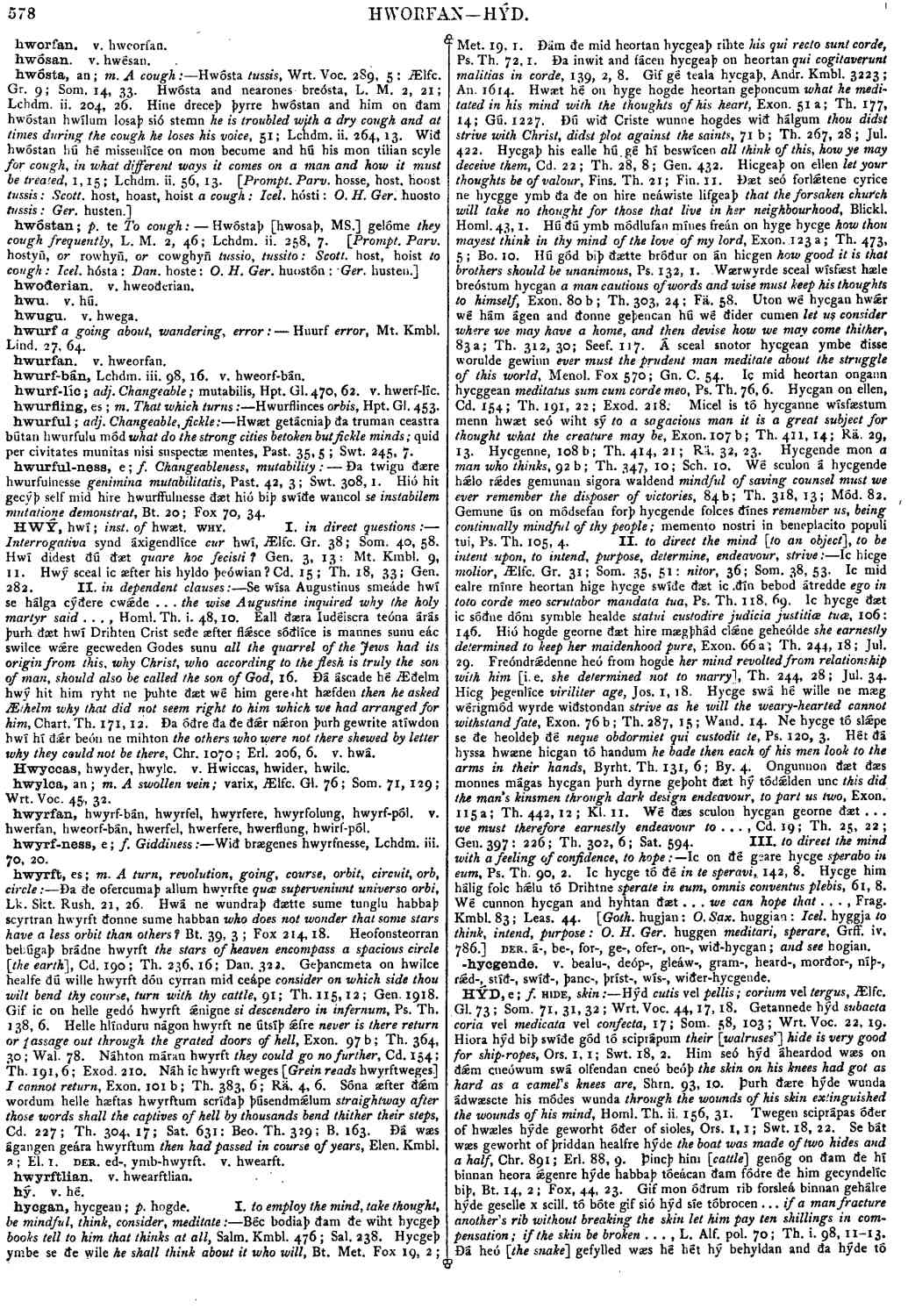HWÝ
- conjunction
- pronoun
-
cur
hwí,
- Ælfc. Gr. 38 ;
- Som. 40, 58.
-
Hwí didest ðú ðæt
quare hoc fecisti?
- Gen. 3, 13 :
- Mt. Kmbl. 9, 11 .
-
Hwý sceal ic æfter his hyldo þeówian?
- Cd. 15; Th. 18, 33 ;
- Gen. 282 .
-
Se wísa Augustinus smeáde hwí se hálga cýðere cwǽde ...
the wise Augustine inquired why the holy martyr said ...,
- Homl. Th. i. 48, 10.
-
Eall ðæra Iudéiscra teóna árás þurh ðæt hwí Drihten Crist seðe æfter flǽsce sóðlíce is mannes sunu eác swilce wǽre gecweden Godes sunu
all the quarrel of the Jews had its origin from this, why Christ, who according to the flesh is truly the son of man, should also be called the son of God,
- 16.
-
Ðá áscade hé Æðelm hwý hit him ryht ne þuhte ðæt we him gereaht hæfden
then he asked Æthelm why that did not seem right to him which we had arranged for him,
- Chart. Th. 171, 12.
-
Ða oðre ða ðe ðǽr nǽron þurh gewrite atíwdon hwí hí ðǽr beón ne mihton
the others who were not there shewed by letter why they could not be there,
- Chr. 1070 ;
- Erl. 206, 6.
Bosworth, Joseph. “HWÝ.” In An Anglo-Saxon Dictionary Online, edited by Thomas Northcote Toller, Christ Sean, and Ondřej Tichy. Prague: Faculty of Arts, Charles University, 2014. https://bosworthtoller.com/20220.
Checked: 1